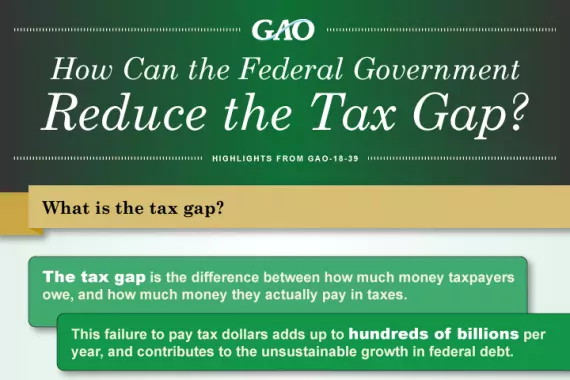Image
Tax Policy and Administration
Image
Recent Reports
Open Recommendations
Puerto Rico: IRS Should Improve Oversight of Taxpayers Claiming Exemption from Federal Taxes
GAO-26-107225
Dec 12, 2025
Show
3 Open Recommendations
Taxpayer Experience: IRS Should Fully Establish Its Approach for Using Evidence to Assess Service Improvement Results
GAO-25-107408
Jul 17, 2025
Show
1 Open Recommendations
1 Priority






